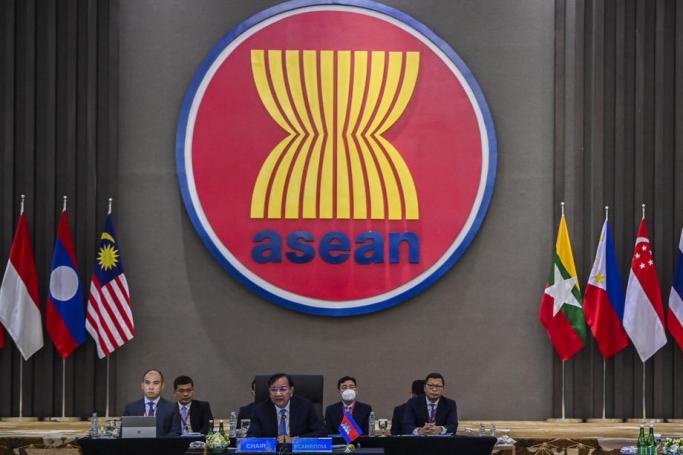There has been criticism of the Association of South East Nations (ASEAN) response to the crisis in Myanmar following the Special ASEAN Foreign Ministers ’Meeting that was held on 27 October in Jakarta.
A non-political representative from Myanmar was invited to the meeting, but no Myanmar representative attended.
ASEAN issued an anodyne statement following the meeting in which it said that ASEAN would continue to follow the Five-Point Consensus (5PC) endorsed by the ASEAN Leaders' Meeting on 24 April 2021, despite Mina Aung Hlaing and the Myanmar junta completely ignoring it and not making any of the reforms they promised to when the consensus was agreed.
Rather than ditching the failed 5PC the ASEAN statement said: “The Meeting exchanged extensive views on how to further strengthen the implementation of the 5PC to help solve Myanmar’s crisis,” so that Myanmar can resume “full and normal engagements with ASEAN”.
In response to the statement Phil Robertson, Deputy Asia Director, of Human Rights Watch (HRW) said: “ASEAN has reached a make or break point on Myanmar, but the Special Foreign Ministers meeting statement reflected just more business as usual, and that’s a huge disappointment.
“It’s hard to see how the Five Point Consensus can be saved when the SAC military junta has failed to implement one word of what Sr. Gen. Min Aung Hlaing promised in Jakarta last year.
“Myanmar’s junta has time and again shown a total lack of respect for ASEAN, which it happily uses as both a shield to fend off international criticism as well as a useful diplomatic diversion that buys time for the junta to carry out its brutal war against the Burmese people.”
Despite this criticism, also echoed by many others, ASEAN seems committed to the 5PC and convinced that the way ASEAN is currently responding will help to solve the Myanmar crisis, saying in its statement that it is “reaffirming the importance of the 5PC, which emphasized ASEAN Centrality and ASEAN’s leading role in returning peace and normalcy for the people of Myanmar”.
Human Rights Watch and other observers believe that ASEAN has not done enough. Phil Robertson said: “Instead of the kind of wishy-washy language contained in the Chairperson’s statement today, ASEAN needs to get tough by establishing clear, time-bound human rights benchmarks on Myanmar that include
the release of political prisoners, a cessation of attacks on civilians, and steps towards dissolving the junta to allow for the establishment of civilian democratic rule.
“Those benchmarks should be accompanied by clear penalties should Myanmar fail to meet them. ASEAN should also make a strong push for a global arms embargo, and adopt targeted sanctions against the Myanmar military and its business interests.”
But, ASEAN in its statement seemed far keener on praising Cambodia for its work as the chair of ASEAN for the last 10 months. Whilst the statement went out of its way to praise Cambodia at least three times, it did not mention even one concrete action that would be taken against the Myanmar junta.
Human Rights Watch also commented on this lack of action or criticism of Myanmar. Phil Robertson said: “Even small actions to show displeasure with Myanmar were not picked up by the ASEAN member states at this meeting. It would have been a simple thing for today's meeting to propose to the ASEAN leaders meeting next month to disinvite all Myanmar representatives of any rank to all ASEAN related meetings, large or small, regardless of the topic. But even that was apparently a bridge too far for this bloc, which remains completely divided on what to do with Myanmar. One hopes that at least these governments will stop all actions to send asylum seekers or refugees from frontline ASEAN states back to Myanmar.”
This is not the view of ASEAN which boasts in its statement “Undoubtedly, the situation on the ground remains critical and fragile, and this is not due to the lack of commitments and efforts on the part of ASEAN and the Special Envoy,” despite an abundance of evidence showing how ineffectual ASEAN. has been in tackling the Myanmar crisis.
Phil Robertson summed it up well when he said: “Statements like this one from what was supposed to be a pivotal meeting once again point to ASEAN as a total dead end on Myanmar. Dialogue partners to the bloc must now urgently re-think the notion of "ASEAN centrality" in seeking a solution to this crisis because it seems that ASEAN is not up to the task.












